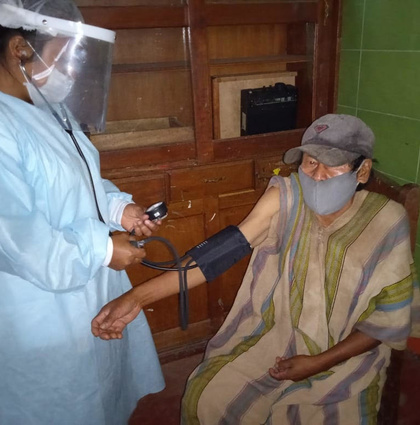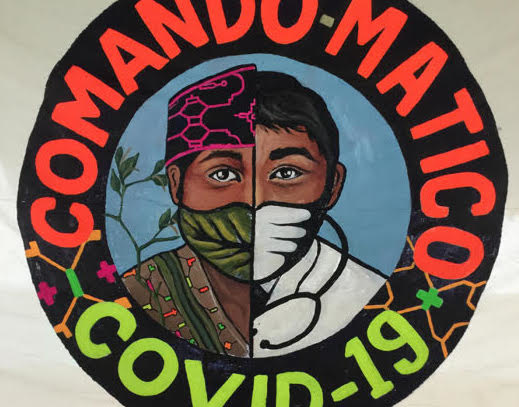

Deborah Delgado Pulgy describes collaborative research with the indigenous peoples of Ucayali, the second biggest Amazonian state of Peru, documenting how traditional medicine and inter-communal organization underpinned action to cope with the COVID-19 outbreak.
Deborah is based in the Sociology Department at the Pontificia Universidad Católica del Perú in Lima.
COVID-19 has reshaped our strategies to communicate and collaborate with the people and places we work with and care about. I have been doing fieldwork in the Amazon of Bolivia and Peru for the last 10 years as a single researcher through interdisciplinary research teams. This work is a source of both intellectual growth and life lessons that have shaped my view of global affairs.
Like many of us, I keep close contact with the indigenous friends and colleagues with whom I collaborate. When the pandemic hit Peru, a network of allies of indigenous peoples of Ucayali - the second biggest Amazonian state of Peru - was quickly formed. It was impossible to travel, but we found ways to actively collaborate. Through this virtual network we kept informed (using WhatsApp and phone calls), we shared civil society´s initiatives, and we collectively supported indigenous communities.
In Ucayali 20 indigenous peoples live and thrive. My team and I decided to specifically support the Regional Office for the development of Indigenous Peoples, managed by John Salcedo, an indigenous lawyer of the Yine people. Knowing that indigenous peoples of the Amazon Basin are particularly skilled in facing infectious diseases with traditional medicine and inter-communal organization, we opened a space to reflect on what was happening as it unfolded. We aimed at documenting how indigenous organizations’ networks took action to cope with Covid19 outbreak. We were very honored to be awarded the support of the Social Science Research Council in September 2020.
In order to work together, we formed a network for collaborative fieldwork. We meet by zoom to talk about what took our attention, we shared images, and had informal conversations on how official plans deployed in practice. We allocated time to discuss and take lessons from this troubled time. When the hardest moment passed, we crafted together an interview guide.
Our colleague in Ucayali and myself did 25 in-depth interviews focusing on the policy side of the public intervention. Then, 10 interviews on the use of traditional medicine and cosmovision with herbalist, families and chamans. We organized a stakeholder forum to assess the lessons learned and discuss the consequences of the decease and how to devellop an integrated approach to health.
What are we learning so far? From a methodological point of view, we consider that creating trust and confidence is a key step for any collaborative research approach. Working on a network by virtual means during an emergency is possible if these relationships are based in solidarity.
Although indigenous peoples have certainly worked as a network that prioritizes the care of the community and the individuals affect by Covid, we have to remember that these praiseworthy efforts should not be define solely as resilience. Seeing it only as resilience is a subtle way to abandon indigenous peoples to be resilient. It hides public indifference. The lack of resources and health care are salient, health needs have to be addressed. If this is not done, indigenous peoples, who are Peruvian citizens, will continue to be actively abandoned by a state that renounces respect for their fundamental right to health. Traditional medicine's approach to care and therapeutics is a way forward that should be respected and integrated in subnational government’s works for their peoples. We see promising ways forwards in this collaboration to reshape public action on health.
Photo credits: Imagen Institucional GOREU - Jacqueline Méndez – GRDP (centre); Gerencia Regional de Desarrollo de Pueblos Indígenas (left)
The research team is: Deborah Delgado , John Salcedo, Jacqueline Mendez, and Damaris Herrera.
